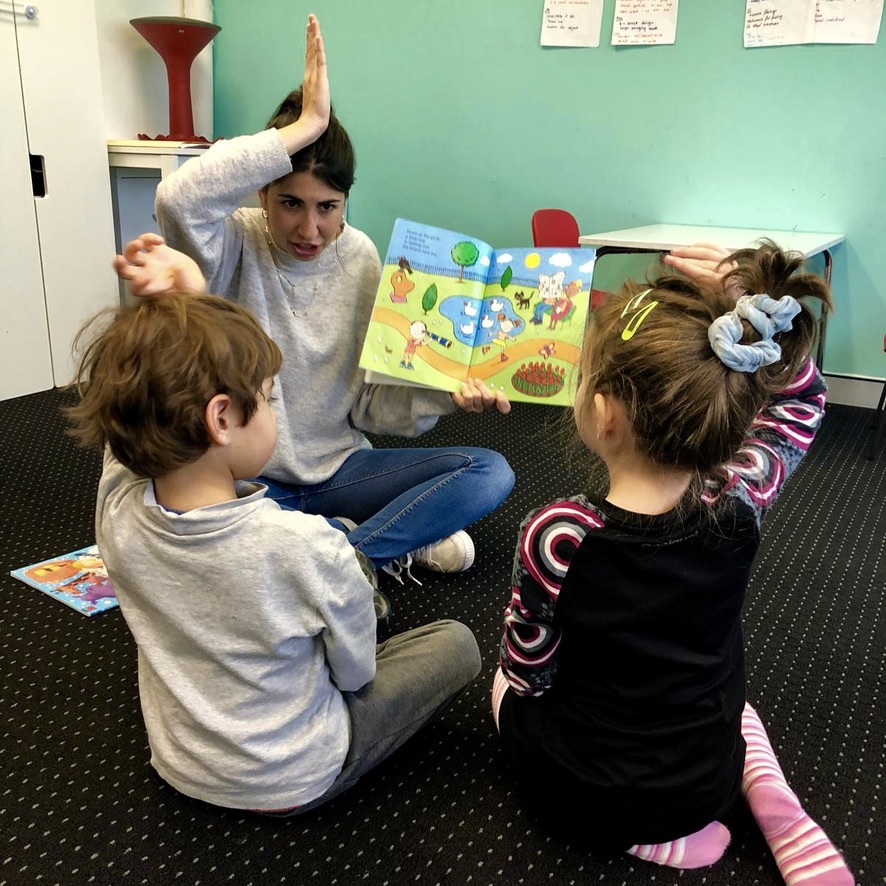
How ESDM Builds Social Skills in Children with Autism
The Early Start Denver Model (ESDM) is a proven method for helping children with autism improve their social skills. Social skills are essential for building relationships and interacting with others. ESDM uses a play-based approach to teach these skills during the early years, when brain development is at its peak. By focusing on these critical years, ESDM helps children with autism learn social behaviours that become part of their everyday life.
At OneOnOne Children’s Therapy, we use ESDM at our clinics in Bondi Junction and Mascot to help children develop these vital skills. Let’s explore how this method supports social development and why it works so well.
Key Strategies in ESDM for Social Skills Development
1. Naturalistic Teaching Approach
ESDM blends social skill-building into everyday activities and play. Children learn through real-life interactions, not just in structured settings. This approach makes learning more relevant to a child’s daily experiences. When children practice social skills in familiar situations, like playtime, they are more likely to use them in different environments.
For example, a therapist might use a favourite toy to encourage sharing or taking turns. This natural setting makes it easier for children to pick up social cues.
2. Play-Based Interventions
Play is at the core of ESDM. Through guided play, children practice key social skills like sharing, turn-taking, and responding to others. The games and activities are fun and keep children motivated to participate.
For instance, turn-taking games with toys or activities that involve cooperation help children learn how to interact with peers. These playful moments make social learning feel natural and enjoyable.
3. Joint Attention
Joint attention is the ability to focus on the same thing with another person. This skill is crucial for social interactions and communication. ESDM focuses on building joint attention through shared activities.
For example, a therapist might encourage a child to look at a toy together or follow a pointing gesture. These activities help children learn how to share attention, an important building block for conversations and social interaction.
4. Modelling and Imitation
Imitation is one of the most effective ways children learn social behaviours. In ESDM, therapists and parents model actions like greetings, waving, or making eye contact. The child is encouraged to imitate these actions, which helps them learn social cues in a supportive setting.
For example, the therapist may say “hello” and wave, prompting the child to do the same. Imitating these actions helps the child understand how to engage in social situations.
5. Positive Reinforcement
Positive reinforcement is a key tool in ESDM. When a child engages in a social behaviour, such as making eye contact or responding to someone, they receive praise or a reward. This motivates them to repeat the behaviour.
For instance, if a child greets someone, they might receive verbal praise or a favourite toy. This reinforcement encourages them to continue practicing the social behaviour in the future.
6. Parent Involvement
Parents play a big role in ESDM. They learn how to apply ESDM techniques at home during everyday activities. This makes social learning continuous, even outside of therapy sessions. Parents are shown how to create opportunities for social interactions throughout the day.
For example, parents can practice social skills during meals, bath time, or while playing at home. This constant reinforcement helps the child build strong social skills over time.
Outcomes and Benefits of ESDM for Social Skills
Children who go through ESDM often show major improvements in their social skills. They make better eye contact, use more gestures, and become more comfortable initiating and responding to social interactions. These gains can lead to better relationships with peers, siblings, and adults.
Since ESDM involves parents, these skills are reinforced at home, making it easier for the child to continue progressing. Research shows that children in ESDM therapy often maintain these gains over time, as social learning becomes part of their everyday routine.
Why ESDM Works for Social Skills
The Early Start Denver Model is highly effective because it’s play-based, child-led, and focused on natural learning opportunities. This approach keeps children engaged while teaching them essential social behaviours. By concentrating on areas like joint attention, imitation, and reinforcement, ESDM helps children develop the skills they need to navigate social interactions with confidence.
At OneOnOne Children’s Therapy in Bondi Junction and Mascot, we’re dedicated to helping children build their social skills through ESDM. Our team of Certified ESDM Therapists, Speech Pathologists, and Occupational Therapists work together to provide comprehensive support for each child.
We’re Here to Support You
At OneOnOne Children’s Therapy, we believe every child has the potential to grow and thrive. Our clinics in Bondi Junction and Mascot provide a safe and engaging space where children can discover their strengths and improve their social skills.
Reach Out for Support
If you’re concerned about your child’s social development, we’re here to help. Our Certified ESDM Therapists are trained at the highest levels to provide exceptional care. With clinics in Bondi Junction and Mascot, we serve families across Sydney.
Call us on (02) 80657837 or email us to book a consultation. You can also schedule a free 30-minute phone call to discuss how ESDM can support your child’s unique journey. Together, we can help your child build the social skills they need to succeed.
